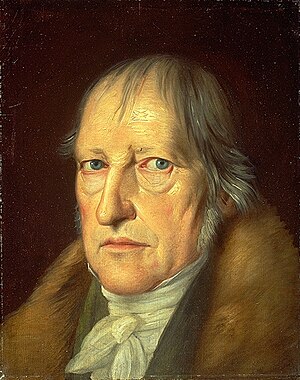 Image via Wikipedia
Image via WikipediaThe Bavarian Illuminati originated during an age replete with the growing belief in the acquisition of truth through observation and experience. The Age of Enlightenment was in full swing and by the end of the Eighteenth Century an explosion of natural philosophy, science, the resurgence of hermeticism and occult experimentation, all competed directly with the traditional teachings of the Church and the Jesuit monopoly in the Universities and Colleges. 5 Numerous ideologies owe an intellectual and political heritage to this period: skepticism, rationalism, atheism, liberalism, humanism, reductionism, modernism, communism, nihilism and anarchism - among the most apparent.
As the Eighteenth Century came to a close Baron de Montesquieu (1689-1755), Denis Diderot (1713-1784), Voltaire (1694-1778), Jean-Jacques Rousseau (1712-1778), Marquis de Condorcet (1743-1794), Comte de Mirabeau (1749- 1791), David Hume (1711-1776), Adam Smith (1723-1790), Immanuel Kant (1724-1804), Emanuel Swedenborg (1688-1772) and Johann Wolfgang von Goethe (1749-1832) were famous in their own time. The instrument of reason became a new faith, no less susceptible to its own breed of dogmatism. The philosophers of the Enlightenment reasoned that the physics of Newton might become applicable in all fields of endeavor: the fundamental cosmic laws of nature could transform society and man himself into a "noble savage." 6
The idea of a "glorious revolution" attained widespread acceptance, but during Weishaupt's time it was still a relatively new concept to link political change with social change. The "imminent revolution of the human mind," promulgated by the "radical Bavarian Illuminists," coincided with Mirabeau's doctrine of a coming secular upheaval and universal revolution. Mirabeau proclaimed Prussia to be the most likely place for the start of the revolution, with the "German Illuminists as its probable leaders." History records, however, that it was Mirabeau himself who became one of the main catalysts to spark the "fire in the minds of men" during the French Revolution. 7
At about the same time Weishaupt was embarking on an academic career two important figures entered the world stage: Thomas Robert Malthus, 8 born in 1766, a major influence on Darwinism, population control and the eugenics movement; four years later we see the birth of Georg Wilhelm Friedrich Hegel, in Stuttgart Germany, the inventor of what would become known as the "Hegelian Dialectic." "For Hegelians," Antony C. Sutton reports, "the State is almighty and seen as 'the march of God on earth.' Indeed, a State religion. Progress in the Hegelian State is through contrived conflict: the clash of opposites makes for progress. If you can control the opposites, you dominate the nature of the outcome" (Introduction to the 2002 edition of America's Secret Establishment: An Introduction to the Order of Skull & Bones, no pagination PDF copy).
Revolutionary radicals were impressed with the proof-of-concept displayed by the ruthless conspirators in France. Malthusian and Hegelian dogma became equally influential for anarchists, communists, the intelligentsia and the new breed of revolutionaries that surfaced in the 19th Century: Young Hegelians such as Bakunin, Proudhon and Marx took up the cause in the "spirit of the times" to "destroy in order to build."
The Bavarian Illuminati: The "Insinuating Brothers" of ☉
“Weishaupt . . . proposed as the end of Illuminism the abolition of property, social authority, nationality, and the return of the human race to the happy state in which it formed only a single family without artificial needs, without useless sciences, every father being priest and magistrate. Priest of we know not what religion, for in spite of their frequent invocations of the God of Nature, many indications lead us to conclude that Weishaupt had, like Diderot and d'Holbach, no other God than Nature herself. From his doctrine would naturally follow German ultra-Hegelianism and the system of anarchy recently developed in France, of which the physiognomy suggests a foreign origin.”- Henry Martin, Histoire de France depuis les temps les plus reculés jusqu'en 1789, XVI. 533. 9
“Do you realize sufficiently what it means to rule - to rule in a secret society? Not only over the lesser or more important of the populace, but over the best of men, over men of all ranks, nations, and religions, to rule without external force, to unite them indissolubly, to breathe one spirit and soul into them, men distributed over all parts of the world? . . . And finally, do you know what secret societies are? What a place they occupy in the great kingdom of the world's events? Do you think they are unimportant, transitory appearances?”- Adam Weishaupt, Nachtrag von weitern Originalschriften, II, pp. 44, 51.

No comments:
Post a Comment